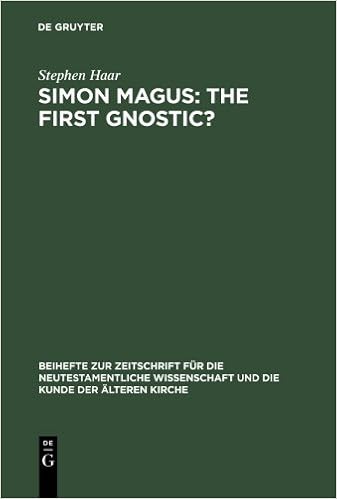This book attempts to answer the question, Was Simon Magus really the first gnostic? To answer the question, Haar looks at different accounts of Magus, the different meanings of the words associated with him, and the critical views with regard to the various accounts about him. As for his own opinion on the subject--it stays nicely hidden until the last few pages. As such, one doesn't get much of a feeling of Magus himself; rather, one gets a nice summary of the related literature. I'd thought this typical of such studies in the first chapter, but it more or less continues throughout the book. As such, this is a great book for getting a full range of views on Magus, but such summary also makes for rather dull, if precise, reading.
As Haar notes, major problems with defining who Magus was include the fact that all of the writing about him is from his detractors and the fact that there is a large gap between the early accounts. First mentioned in Luke, he doesn't show up again for decades until he is called the father of all heresies by Justin Martyr. From there, his reputation spirals further down, until he is blamed for all kinds of odd practices.
Simon is called "Magus"--magi--a sorcerer. Haar explores what this might mean--or rather what it would have meant at the time. We tend to think of such people as magicians and soothsayers, but Haar shows how the magi were in a sense thinkers from Persia, priests of sorts. He also shows how "magic"--telling the future and such--was not always seen in a negative light.
Finally, he explores gnosticism itself and what it is. He shows how the meaning is hard to pin down. Eventually, he evaluates Simon as a gnostic in three different manners: (1) by the Messina convention, which created a formal definition for gnosticism, problematic as it is; (2) by the early Christian writers who defined who Simon was; and (3) by how Simon may have seen himself as far as Haar can tell/imagine based on the writings about him.







No comments:
Post a Comment